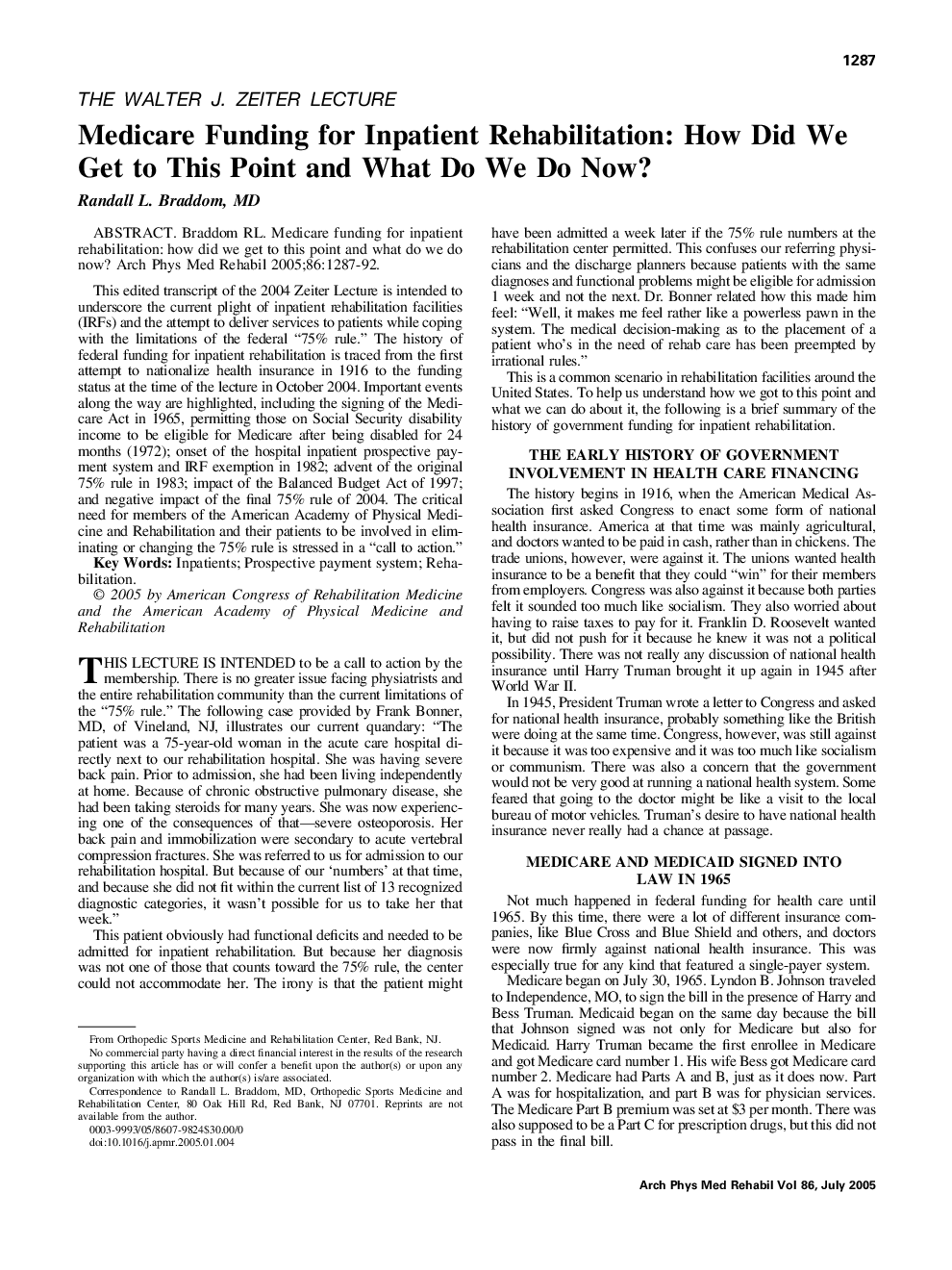| Article ID | Journal | Published Year | Pages | File Type |
|---|---|---|---|---|
| 10041269 | Archives of Physical Medicine and Rehabilitation | 2005 | 6 Pages |
Abstract
This edited transcript of the 2004 Zeiter Lecture is intended to underscore the current plight of inpatient rehabilitation facilities (IRFs) and the attempt to deliver services to patients while coping with the limitations of the federal “75% rule.” The history of federal funding for inpatient rehabilitation is traced from the first attempt to nationalize health insurance in 1916 to the funding status at the time of the lecture in October 2004. Important events along the way are highlighted, including the signing of the Medicare Act in 1965, permitting those on Social Security disability income to be eligible for Medicare after being disabled for 24 months (1972); onset of the hospital inpatient prospective payment system and IRF exemption in 1982; advent of the original 75% rule in 1983; impact of the Balanced Budget Act of 1997; and negative impact of the final 75% rule of 2004. The critical need for members of the American Academy of Physical Medicine and Rehabilitation and their patients to be involved in eliminating or changing the 75% rule is stressed in a “call to action.”
Related Topics
Health Sciences
Medicine and Dentistry
Medicine and Dentistry (General)
Authors
Randall L. MD,
